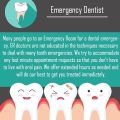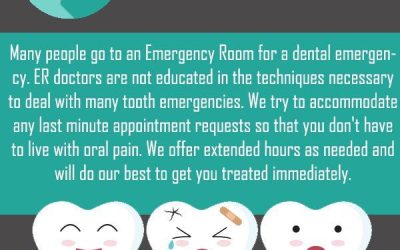Imagine this: you’re brushing your teeth one morning, minding your own business, and suddenly, your gums start to bleed. You’re startled, perhaps even a little concerned. What could be causing this unexpected and unwanted occurrence? In this article, we’ll explore the phenomenon of “Bleeding Gums” – why it happens, possible causes, and most importantly, how you can take care of your oral health to prevent it. So buckle up, because we’re about to unravel the mystery behind those pesky bleeding gums.
Causes
Gingivitis
Gingivitis is one of the leading causes of bleeding gums. It is a common form of gum disease that occurs when plaque, a sticky film of bacteria, builds up on the teeth and gums. The bacteria in plaque release toxins that irritate the gum tissue, leading to inflammation and bleeding.
Periodontitis
If left untreated, gingivitis can progress into periodontitis, a more severe form of gum disease. Periodontitis occurs when the infection in the gums spreads to the bone and connective tissues that support the teeth. This can cause the gums to recede, leading to bleeding and eventually tooth loss if not treated promptly.
Medication Side Effects
Certain medications, such as blood thinners, can increase the likelihood of bleeding gums. These medications inhibit the clotting of blood, making it easier for the gums to bleed. If you are taking any medication and experiencing bleeding gums, it is important to consult with your doctor or dentist.
Vitamin Deficiencies
Vitamin deficiencies, particularly in vitamins C and K, can contribute to bleeding gums. Vitamin C plays a crucial role in the health of gums and other oral tissues, while vitamin K is involved in blood clotting. If your diet lacks these essential vitamins, it may increase the risk of bleeding gums.
Hormonal Changes
Hormonal changes, such as those that occur during pregnancy or menopause, can affect the oral health and lead to bleeding gums. Increased levels of hormones can cause increased blood flow to the gums, making them more sensitive and prone to bleeding.
Poor Oral Hygiene
Neglecting proper oral hygiene practices, such as brushing and flossing regularly, can lead to the buildup of plaque and tartar on the teeth and gums. This can irritate the gum tissue and cause bleeding.
Ill-fitting Dentures
Ill-fitting dentures can put pressure on the gums, leading to irritation and bleeding. If your dentures do not fit properly, it is important to visit your dentist for adjustments or replacements to prevent further damage to your gums.
Leukemia
Leukemia, a type of blood cancer, can cause bleeding gums as a result of abnormal blood cell production. The cancerous cells can affect the normal clotting functions in the body, leading to easy and frequent bleeding.
Blood Disorders
Certain blood disorders, such as hemophilia or von Willebrand disease, can cause bleeding gums. These disorders impair the blood’s ability to clot properly, making the gums more prone to bleeding.
Smoking
Smoking tobacco products not only increases the risk of gum disease, but it can also irritate the gums and cause them to bleed. Smoking reduces blood flow to the gums and weakens the immune system, making it harder for the body to fight off infections and heal gum tissue.
Symptoms
Red and Swollen Gums
One of the noticeable signs of bleeding gums is redness and swelling of the gum tissue. Healthy gums should have a pink color, so any abnormal redness could indicate an underlying issue.
Tender or Painful Gums
If your gums are tender or painful to the touch, it could be a sign of gingivitis or periodontitis. This discomfort may worsen when brushing or eating.
Bleeding during Brushing or Flossing
The most obvious symptom of bleeding gums is bleeding that occurs during brushing or flossing. If you notice blood on your toothbrush or when you spit after brushing, it is important to address this issue promptly.
Receding Gums
As gum disease progresses, the gums may start to recede or pull away from the teeth. This can expose the roots of the teeth, leading to heightened sensitivity and an increased risk of tooth decay.
Bad Breath
Persistent bad breath, also known as halitosis, can be a symptom of gum disease. The bacteria that cause gum disease can release foul-smelling gases, contributing to unpleasant breath odor.
Metallic Taste in Mouth
Some individuals may experience a metallic taste in their mouth, which can be caused by the presence of blood in the saliva due to bleeding gums. This taste can be persistent and affect one’s sense of taste temporarily.
Diagnosis
Dental Examination
To diagnose the cause of bleeding gums, a dental examination is essential. The dentist will visually inspect the condition of your gums, checking for signs of inflammation, recession, or infection. They may also use a dental probe to measure the depth of spaces (pockets) between the gums and teeth.
Medical History Assessment
Providing a comprehensive medical history is crucial in determining the underlying causes of bleeding gums. Certain medical conditions, medications, or lifestyle factors may contribute to the issue. Be prepared to discuss any relevant details with your dentist to aid in the diagnosis process.
Blood Tests
In some cases, blood tests may be necessary to assess your overall health and detect any underlying medical conditions or blood disorders that could be causing bleeding gums.
Treatment
Professional Dental Cleaning
A professional dental cleaning, also known as scaling and root planing, is often the first step in treating bleeding gums. During this procedure, a dental hygienist or dentist will remove the plaque and tartar buildup from your teeth and beneath the gumline, eliminating the source of irritation and infection.
Improving Oral Hygiene
Developing and maintaining a proper oral hygiene routine is crucial in managing and preventing bleeding gums. Brush your teeth at least twice a day using a soft-bristle toothbrush and fluoride toothpaste. Don’t forget to floss daily to remove plaque and food particles from between your teeth and along the gumline.
Antibacterial Mouthwash
Using an antibacterial mouthwash recommended by your dentist can help kill bacteria and reduce plaque accumulation, promoting gum health. Rinse your mouth with the mouthwash for the duration specified on the label or as instructed by your dentist.
Medication for Gum Diseases
In some cases, your dentist may prescribe medications, such as antimicrobial mouth rinses or antibiotics, to treat gum disease and prevent further inflammation and infection. These medications can help control bacterial growth and support the healing process.
Gingival Grafting
Gingival grafting, also known as gum grafting, may be recommended for those with severe gum recession. This surgical procedure involves taking tissue from another area of your mouth, typically the palate, and attaching it to the receded areas of the gums to restore gum tissue and protect the exposed tooth roots.
Removal of Irritants
If there are any irritants contributing to your bleeding gums, such as rough dental restorations or dental appliances, your dentist may recommend their removal or replacement. This will eliminate ongoing irritation and promote gum healing.
Addressing Underlying Medical Conditions
If bleeding gums are a symptom of an underlying medical condition, such as leukemia or a blood disorder, working closely with your healthcare provider is essential. Treating the medical condition itself can often lead to improved gum health.
Laser Therapy
In some cases, laser therapy may be used to treat gum disease and reduce bleeding gums. This minimally invasive procedure utilizes a dental laser to remove bacteria and infected gum tissue, promoting gum healing and reducing inflammation.
Prevention
Daily Oral Hygiene Practices
Maintaining good oral hygiene practices on a daily basis is crucial in preventing bleeding gums. Brush your teeth at least twice a day, floss daily, and incorporate antimicrobial mouthwash into your routine. Make sure to use proper brushing techniques and avoid aggressive brushing, as it can irritate the gums.
Regular Dental Check-ups
Scheduling regular dental check-ups and cleanings every six months is essential in preventing and detecting early signs of gum disease. Your dentist can identify any issues promptly and provide appropriate treatment and guidance to maintain optimal gum health.
Balanced Diet
A balanced diet, rich in essential nutrients like vitamins C and K, can promote healthy gums and overall oral health. Include plenty of fruits, vegetables, lean proteins, and dairy products in your diet. Limit sugary snacks and beverages, as they can contribute to plaque buildup and gum disease.
Avoiding Tobacco Products
Quitting smoking or avoiding tobacco products altogether is crucial in preventing bleeding gums. Tobacco use weakens the immune system, restricts blood flow to the gums, and increases the risk of gum disease and oral infections.
Managing Stress Levels
Chronic stress can weaken the immune system and increase the risk of gum disease. Find healthy ways to manage stress, such as exercise, meditation, or engaging in hobbies. Taking care of your mental well-being can have a positive impact on your oral health.
Properly Fitting Dentures
If you wear dentures, make sure they fit properly and are regularly checked by your dentist. Ill-fitting dentures can irritate the gums and contribute to bleeding gums. Consult your dentist if you experience any discomfort or signs of gum irritation.
Complications
Gum Abscess
Untreated gum disease can progress to gum abscesses, which are painful infections filled with pus. These abscesses can cause severe pain, swelling, and general discomfort.
Tooth Loss
Chronic gum disease, if left untreated, can lead to tooth loss. As the infection progresses, the gums may recede, and the bone supporting the teeth can weaken, eventually causing tooth loss and the need for dental implants or other tooth replacement options.
Tooth Decay
Bleeding gums can create pockets between the gums and teeth, allowing bacteria to accumulate and contribute to tooth decay. This can result in cavities, tooth sensitivity, and further damage to the teeth.
Oral Infections
Bleeding gums can be a sign of an oral infection. These infections can cause pain, swelling, and even spread to other parts of the body if left untreated.
Bone Loss
Advanced periodontitis can lead to significant bone loss in the jaw. As the infection spreads, it can gradually destroy the supporting bone structure, potentially leading to tooth loss and the need for more extensive dental procedures.
FAQs
What is the main cause of bleeding gums?
The main cause of bleeding gums is often gum disease, specifically gingivitis or periodontitis. Poor oral hygiene practices, such as inadequate brushing and flossing, can lead to plaque buildup, which irritates the gums and causes bleeding.
How can I treat bleeding gums at home?
While professional dental treatment is essential for addressing bleeding gums, there are steps you can take at home to improve gum health. Ensure you brush your teeth twice a day using a soft-bristle toothbrush and fluoride toothpaste, floss daily, and use an antibacterial mouthwash. It is also important to maintain a balanced diet and avoid tobacco products.
When should I see a dentist for bleeding gums?
If you experience bleeding gums persistently or notice other symptoms of gum disease, it is recommended to schedule an appointment with your dentist. They will be able to perform a thorough examination, diagnose the underlying cause, and recommend appropriate treatment options.
Can bleeding gums be a sign of something serious?
Yes, bleeding gums can be a sign of something serious, particularly if it is accompanied by other symptoms such as persistent bad breath, receding gums, or loose teeth. It can indicate the presence of gum disease or potentially an underlying medical condition. Seeking professional dental care is crucial in order to determine the cause and receive appropriate treatment.












